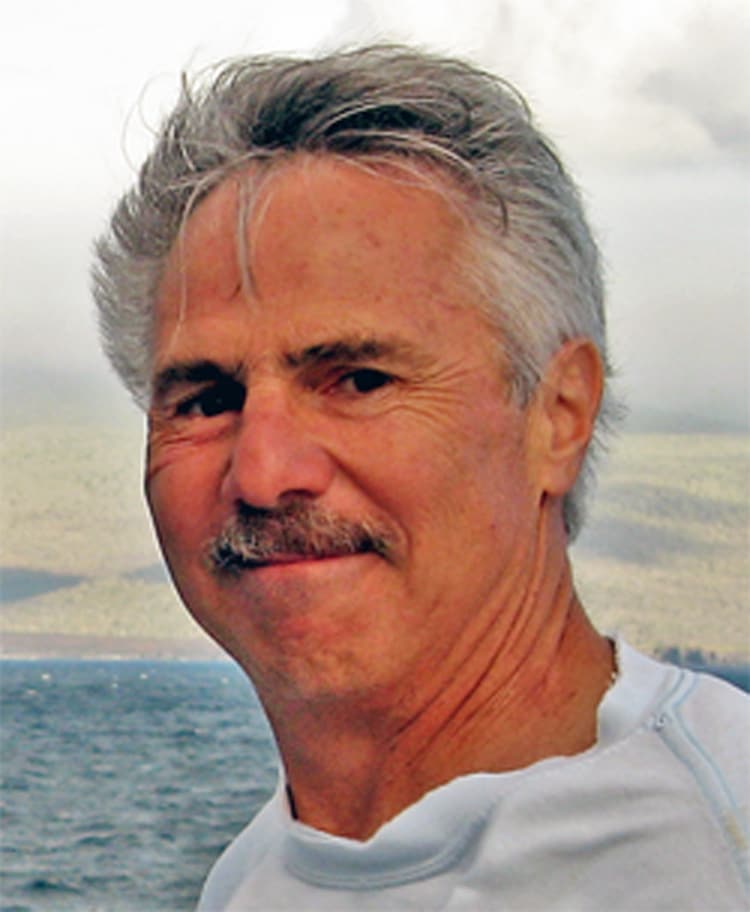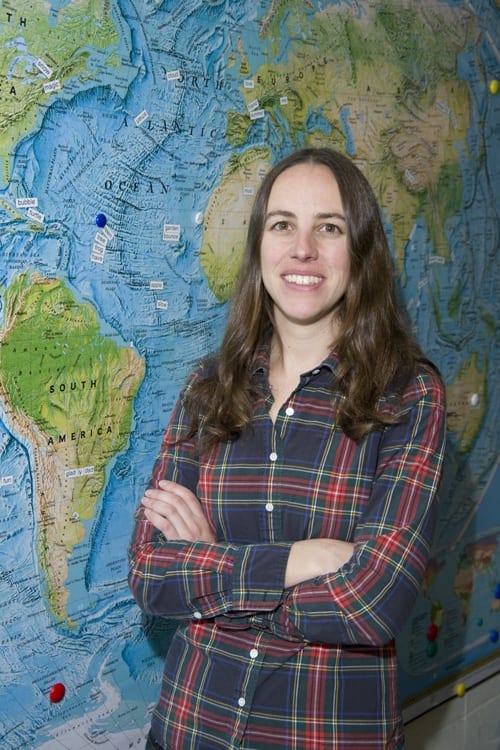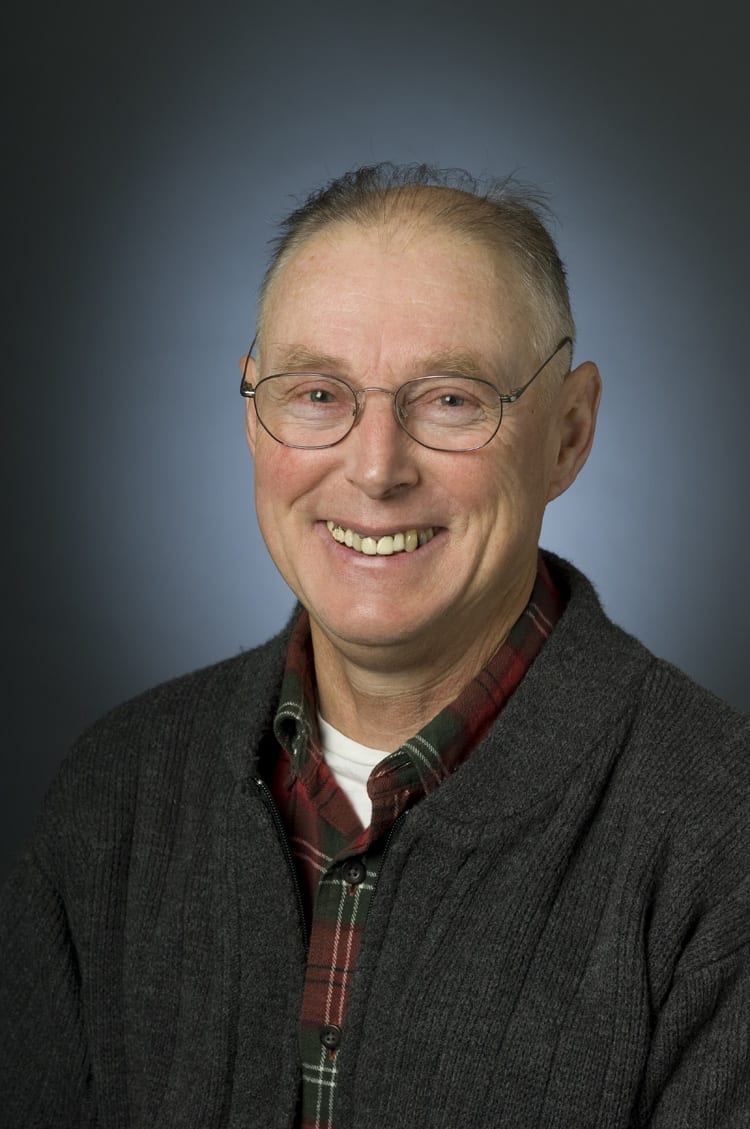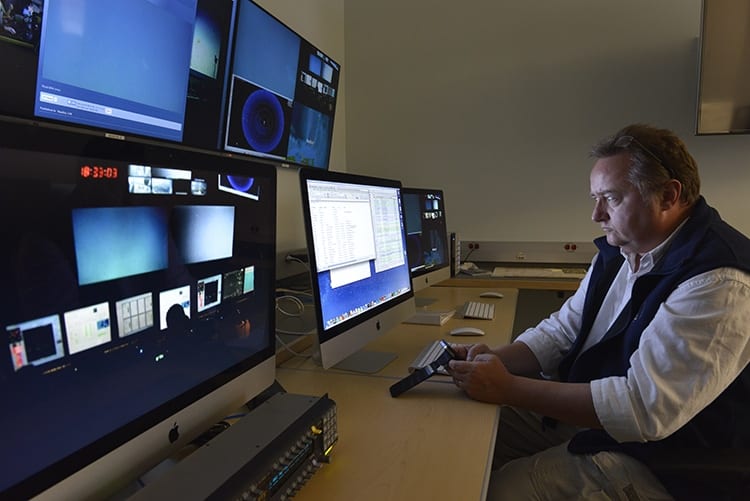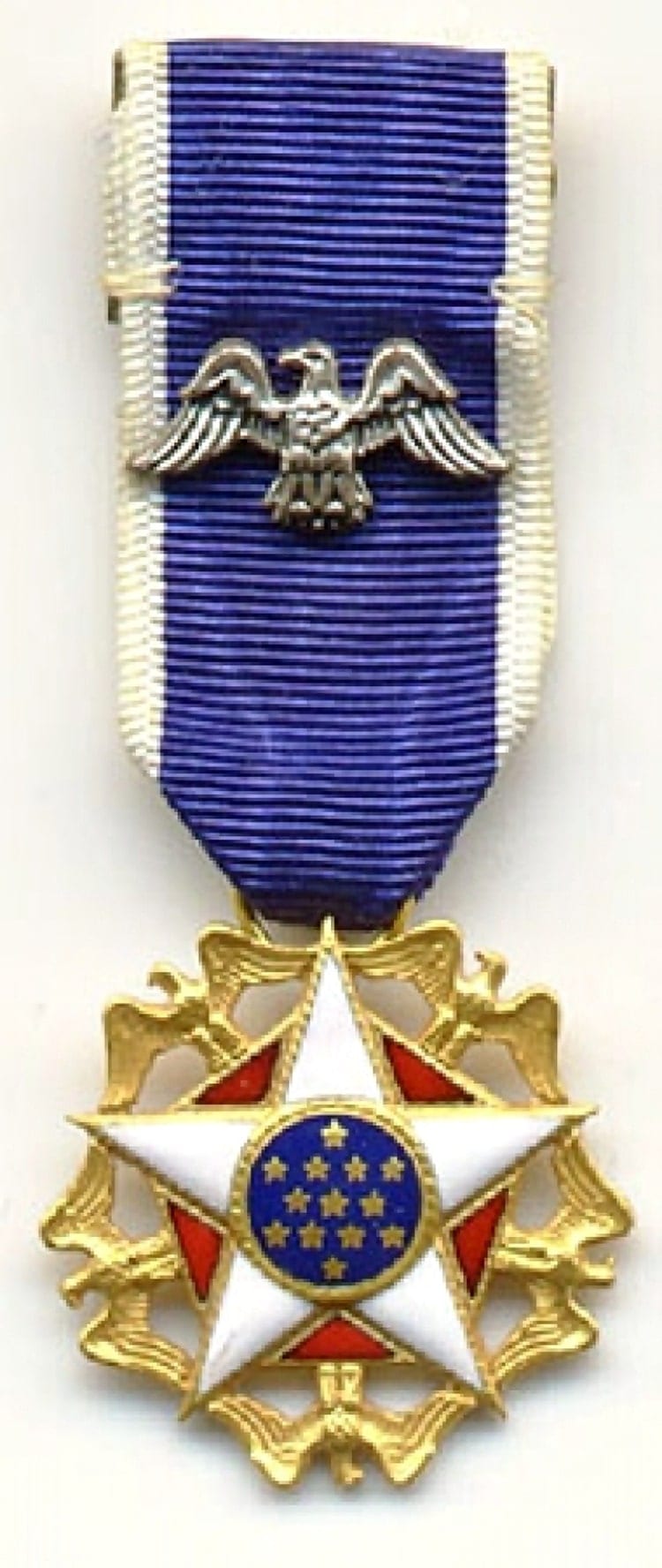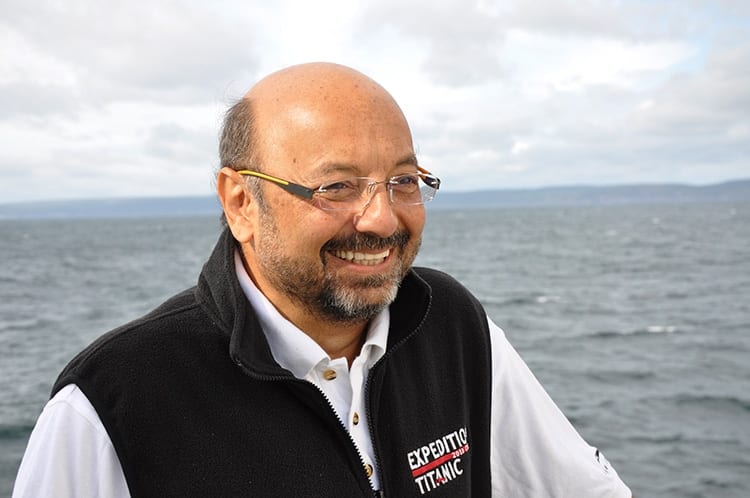News Releases
Study Supplies Insight into Behavior of African Monsoon
Think of the Sahara and you will conjure images of a vast desert landscape, with nothing but sand as far as the eye can see. But for a period of about 10,000 years, the Sahara was characterized by lush, green vegetation and a network of lakes, rivers and deltas.
This “green Sahara” occurred between 14,800 and 5,500 years ago during what is known as the “African Humid Period.” Why and how it ended is the subject of scientific study that holds important information for predicting the region’s response to future climate change.
In a study published this week in Nature Geoscience, a team of researchers provides new insight into the behavior of the African monsoon at the end of the African Humid Period and the factors that caused it to collapse.
Read MoreResearchers Produce Two Biofuels from a Single Algae
A common algae commercially grown to make fish food holds promise as a source for both biodiesel and jet fuel, according to a new study published in the journal Energy & Fuels.
The researchers, led by Greg O’Neil of Western Washington University and Chris Reddy of Woods Hole Oceanographic Institution, exploited an unusual and untapped class of chemical compounds in the algae to synthesize two different fuel products, in parallel, a from a single algae.
Read MoreCoral Reefs Threatened by a Deadly Combination of Changing Ocean Conditions
As the ocean ‘s pH decreases and acidifies, coral reefs are more likely to begin dissolving and “drown”. A new study shows exposing corals to added nutrients increases their erosion and dissolution rate tenfold.
Read MoreCommonwealth Awards $5 M R&D Grant for Center for Marine Robotics
The Commonwealth of Massachusetts has awarded the Woods Hole Oceanographic Institution (WHOI) a $5 million grant toward the construction of new facilities for the testing and research into innovative marine robotics such autonomous underwater vehicles (AUVs). The five-year grant award is being made as part of the Collaborative Research and Development Matching Grant Program, managed by the Massachusetts Technology Collaborative (MassTech). The grant to WHOI’s Center for Marine Robotics will help accelerate the deployment of new and existing marine robotics technologies in Massachusetts
Read MoreStudy Pumps Up the Volume on Understanding of Marine Invertebrate Hearing
A new study by researchers at Woods Hole Oceanographic Institution and their colleagues examined behavioral responses to sound by cuttlefish, a type of shell-less mollusk related to squid and octopi. The study is the first to identify the acoustic range and minimum sound sensitivity in these animals. Their findings, published in the Journal for Experimental Biology, can help decision makers and environmental managers better understand the impacts of noise in the ocean.
Read MoreNereid Under Ice Vehicle: A Powerful New Tool for Polar Science
Scientists studying the harsh and rapidly changing Arctic environment now have a valuable new tool to advance their work—an innovative robot, designed and built at the Woods Hole Oceanographic Institution (WHOI) that is changing the way scientists can interact with and observe the polar environment.
Read MoreDan Fornari to Receive American Geophysical Union’s Flinn Award
Woods Hole Oceanographic Institution Senior Scientist Daniel Fornari has been selected to receive the 2014 Edward A Flinn III Award from the America Geophysical Union (AGU).
Read MoreJessica Tierney Receives Macelwane Award from American Geophysical Union
Woods Hole Oceanographic Institution Assistant Scientist Jessica Tierney has been selected to receive the 2014 James B. Macelwane Medal from the American Geophysical Union (AGU).
Read MoreNew Museum Exhibit Explores Deep Ocean Environment
The Woods Hole Oceanographic Institution (WHOI) in collaboration with the Ocean Explorium in New Bedford, Mass., has created new digital content for museum-based spherical display systems that brings high-definition images and video of dynamic, deep ocean ecosystems to the public.
Read MoreWhitehead to Receive AGU’s 2014 Maurice Ewing Medal
Woods Hole Oceanographic Institution (WHOI) Scientist Emeritus Dr. John (Jack) Whitehead has been selected to receive the 2014 Maurice Ewing Medal from the America Geophysical Union (AGU). The Maurice Ewing…
Read MoreAlexander von Humboldt Foundation Honors Two WHOI Scientists
The Alexander von Humboldt Foundation in Bonn, Germany, has recognized two Woods Hole Oceanographic Institution (WHOI) scientists with honors: Chris German received a Humboldt Research Award and Caroline Ummenhofer was chosen for a Humboldt Research Fellowship.
Read MoreEvidence Suggests California’s Drought is the Worst in 1,200 Years
As California finally experiences the arrival of a rain-bearing Pineapple Express this week, two climate scientists from the University of Minnesota and Woods Hole Oceanographic Institution have shown that the drought of 2012-2014 has been the worst in 1,200 years.
Read MoreScientists Urge Protection of World’s Deltas
Scientists call for maintenance efforts to be started now to avert the loss of vast expanses of coastline, and the consequent losses of ecological services, economic and social crises, and large-scale migrations.
Read MoreWhite House Honors WHOI Life Trustee and Former Trustee
WHOI life trustee Professor Robert Solow and former WHOI trustee Professor Mildred Dresselhaus have been awarded the 2014 Presidential Medal of Freedom.
Read MoreWHOI Part of the Stantec Team Selected to Lead Major Marine Arctic Ecosystem Study
Woods Hole Oceanographic Institution (WHOI), as a part of the Stantec Team, has been selected by an interagency scientific review panel to lead a long-term scientific study of the Arctic marine ecosystem along the Beaufort Sea shelf from Barrow, Alaska, to the Mackenzie River delta in Canadian waters.
Read MoreUnderwater Robot Sheds New Light on Antarctic Sea Ice
The first detailed, high-resolution 3-D maps of Antarctic sea ice have been developed using an underwater robot. Scientists from the UK, USA and Australia say the new technology provides accurate ice thickness measurements from areas that were previously too difficult to access.
Read MoreChief of Naval Operations Visits WHOI
Admiral Jonathan Greenert, the Chief of Naval Operations, visited Woods Hole Oceanographic Institution (WHOI) Nov. 6 for firsthand discussions with scientists and engineers conducting research and building technology with potential to enhance Naval capabilities and operations.
Read MoreFukushima Radioactivity Detected Off West Coast
Monitoring efforts along the Pacific Coast of the U.S. and Canada have detected the presence of small amounts of radioactivity from the 2011 Fukushima Dai-ichi Nuclear Power Plant accident 100 miles (150 km) due west of Eureka, California. Scientists at the Woods Hole Oceanographic Institution (WHOI) found the trace amounts of telltale radioactive compounds as part of their ongoing monitoring of natural and human sources of radioactivity in the ocean.
Read MoreNew Study Finds Oceans Arrived Early to Earth
Earth is known as the Blue Planet because of its oceans, which cover more than 70 percent of the planet’s surface and are home to the world’s greatest diversity of life. While water is essential for life on the planet, the answers to two key questions have eluded us: where did Earth’s water come from and when?
Read MoreStudy Provides Some Answers to Fate of Deepwater Horizon Oil
Nearly five years after the Deepwater Horizon explosion spilled roughly 200 million gallons of oil into the Gulf of Mexico, scientists are still working to answer the question: Where did all the oil go?
A paper published today in the Proceedings of the National Academy of Sciences provides a piece of the puzzle with an analysis of the oil that ended up on the seafloor, establishing its footprint, rough quantity and likely deposition mode, and pegging its source to that deep ocean plume of oil.
Read MoreStunning Finds from Ancient Greek Shipwreck
A Greek and international team of divers and archaeologists has retrieved stunning new finds from an ancient Greek treasure ship that sank more than 2000 years ago off the remote island of Antikythera. The rescued antiquities include tableware, ship components, and a giant bronze spear that would have belonged to a life-sized warrior statue.
Read MoreDavid Gallo Selected for Explorers Club Lowell Thomas Award
The Explorers Club has chosen David Gallo, Director of Special Projects at the Woods Hole Oceanographic Institution (WHOI), as one of the recipients of this year’s Lowell Thomas Award. He is among six recipients who will be honored for their “imagination in exploration” at a dinner on October 11, 2014, at the Bowers Museum in Southern California.
Read MoreNew Collaborative Effort to Gauge National Marine Biodiversity
Woods Hole Oceanographic Institution (WHOI) researchers are part of a collaborative effort to understand and monitor changes in marine biodiversity within U.S. coastal waters. Marine biodiversity is a key indicator of ocean health and critical to sustaining natural resources such as fisheries.
Read MoreAlvin 50th Celebration Highlights Essential Research
The human-occupied sub Alvin was the “guest of honor” this week at House and Senate staff briefings and a reception at the U.S. Capitol, commemorating 50 years of service as…
Read More
